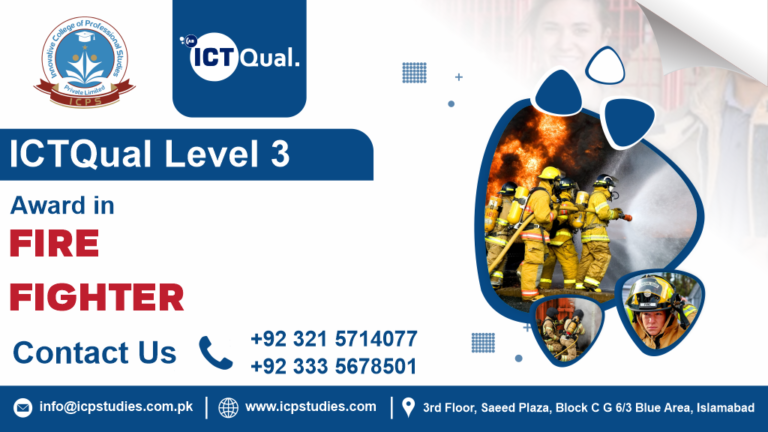In the dynamic realm of construction and industrial safety, few roles are as critical as that of the scaffolding inspector. The Level 2 Award in Scaffolding Inspector stands as a cornerstone certification, equipping professionals with the knowledge and expertise necessary to ensure the safety and structural integrity of scaffolding systems. Whether you’re a seasoned professional in the construction industry or aspiring to enhance your career prospects, understanding the significance of this certification is paramount.
Scaffolding serves as the temporary support structure that facilitates safe access and work at heights during construction, maintenance, and renovation projects. The role of a scaffolding inspector revolves around meticulously assessing scaffolding systems to ensure they meet stringent safety standards and regulatory requirements. These inspectors play a pivotal role in safeguarding the well-being of workers and the public, as well as protecting property from potential hazards.
Level 2 Award in Scaffolding Inspector serves as a beacon of safety in the construction industry and beyond. It empowers individuals with the knowledge, skills, and confidence to undertake critical roles in ensuring the safety and integrity of scaffolding structures. Whether you’re looking to advance your career or enhance safety protocols within your organization, investing in this certification is a proactive step towards achieving excellence in scaffolding inspection and promoting a culture of safety. For those committed to safeguarding lives and enhancing workplace safety standards, the Level 2 Award in Scaffolding Inspector is an indispensable asset on the journey to success.
All About ICTQual Level 2 Award in Scaffolding Inspector
Course Overview
The Level 2 Award in Scaffolding Inspector is a specialized certification designed to equip individuals with the necessary knowledge and skills to inspect scaffolding structures effectively. Scaffolding inspectors play a crucial role in ensuring the safety, stability, and compliance of scaffolding systems used in construction, maintenance, and renovation projects.
Level 2 Award in Scaffolding Inspector is essential for professionals involved in ensuring scaffolding safety and compliance in construction and related industries. By obtaining this certification, individuals demonstrate their commitment to safety excellence and their capability to perform critical inspections that safeguard workers, the public, and property. Investing in this certification not only enhances individual skills but also contributes to creating safer work environments and promoting a culture of safety within organizations.
Study Units
- Introduction to Scaffolding Inspection
- Scaffolding Legislation and Standards
- Scaffolding Components and Structures
- Inspection Procedures
- Risk Assessment and Hazard Identification
- Personal Protective Equipment (PPE)
- Documentation and Reporting
- Emergency Response Procedures
- Practical Skills Training
Admission Criteria
This course on scaffolding inspection and safety is designed for individuals who are involved in or seeking to enter the construction industry, particularly those engaged in scaffold erection, inspection, and maintenance. It is suitable for:
- Construction Workers:
- Individuals working on construction sites who are involved in scaffolding operations, including assembly, use, and dismantling.
- Scaffold Inspectors:
- Professionals responsible for inspecting scaffolding to ensure compliance with safety standards and regulations.
- Site Supervisors and Managers:
- Personnel overseeing construction projects who need to understand scaffolding safety practices and regulations.
- Safety Officers and Consultants:
- Professionals specializing in occupational health and safety who require knowledge specific to scaffolding safety.
- Apprentices and Trainees:
- Individuals undergoing training or apprenticeships in construction trades where scaffolding is a critical component.
- Health and Safety Personnel:
- Those responsible for developing and implementing safety protocols within construction companies or organizations.
- Regulatory Compliance Personnel:
- Individuals involved in ensuring compliance with scaffolding regulations and standards set by authorities.
- Anyone Interested in Scaffolding Safety:
- Individuals interested in acquiring knowledge and skills related to scaffolding safety and inspection, regardless of current occupation, to enhance workplace safety awareness.
This course is valuable for anyone who needs to understand the principles, procedures, and regulations associated with scaffolding to ensure safe working environments on construction sites.
Ideal Candidate
Entry requirements for a course on scaffolding inspection and safety typically include:
- Educational Background:
- High school diploma or equivalent (required for understanding course materials and assessments).
- Language Proficiency:
- Proficiency in the language of instruction (typically English) to comprehend course content and participate effectively.
- Health and Physical Fitness:
- Ability to work at heights and in physically demanding environments (as scaffolding work involves climbing and manual labor).
- Legal Requirements:
- Compliance with legal age requirements for working in construction environments (usually 18 years or older).
- Experience or Training:
- Some courses may require prior experience or training in construction-related fields, although this can vary based on the course level (introductory vs. advanced).
- Safety Awareness:
- Basic understanding of workplace safety practices and awareness of occupational hazards.
- Documentation:
- Some courses may require participants to provide documentation of relevant certifications or prior training in related fields (e.g., construction safety, equipment operation).
- Specific Requirements:
- Depending on the course provider or regulatory requirements, there may be additional specific prerequisites such as a valid driver’s license, medical clearance, or specific certifications (e.g., first aid).
These entry requirements ensure that participants have the foundational knowledge, skills, and abilities necessary to engage effectively in learning about scaffolding inspection, safety procedures, and related topics.
Learning Outcome
- Introduction to Scaffolding Inspection
- Understand the purpose and importance of scaffolding inspection.
- Identify different types and purposes of scaffolding.
- Describe basic scaffolding terminology and components.
- Scaffolding Legislation and Standards
- Explain relevant legislation and regulations pertaining to scaffolding.
- Describe industry standards and guidelines for scaffolding safety.
- Understand the responsibilities of different parties involved in scaffolding operations.
- Scaffolding Components and Structures
- Identify different types of scaffolding components and their functions.
- Explain the assembly and disassembly procedures for scaffolding.
- Demonstrate knowledge of load capacities and weight distribution principles.
- Inspection Procedures
- Conduct thorough pre-use and routine inspections of scaffolding.
- Identify potential hazards and defects during inspections.
- Determine criteria for scaffolding safety and compliance.
- Risk Assessment and Hazard Identification
- Conduct risk assessments related to scaffolding activities.
- Identify hazards associated with scaffolding operations.
- Implement control measures to mitigate identified risks.
- Personal Protective Equipment (PPE)
- Identify appropriate PPE required for scaffolding activities.
- Demonstrate correct usage and maintenance of PPE.
- Explain the importance of PPE in relation to scaffolding safety.
- Documentation and Reporting
- Maintain accurate records related to scaffolding inspections and maintenance.
- Document findings from inspections and risk assessments.
- Prepare reports according to organizational and regulatory requirements.
- Emergency Response Procedures
- Outline emergency procedures specific to scaffolding incidents.
- Demonstrate knowledge of rescue and evacuation procedures.
- Coordinate response efforts effectively in the event of an emergency.
- Practical Skills Training
- Demonstrate competence in assembling and dismantling scaffolding.
- Practice safe climbing and working techniques on scaffolding.
- Apply theoretical knowledge to practical scenarios in scaffolding operations.
These learning outcomes are designed to cover the essential knowledge, skills, and competencies required for each unit related to scaffolding inspection and safety procedures.
FAQs about ICTQual Level 2 Award in Scaffolding Inspector







